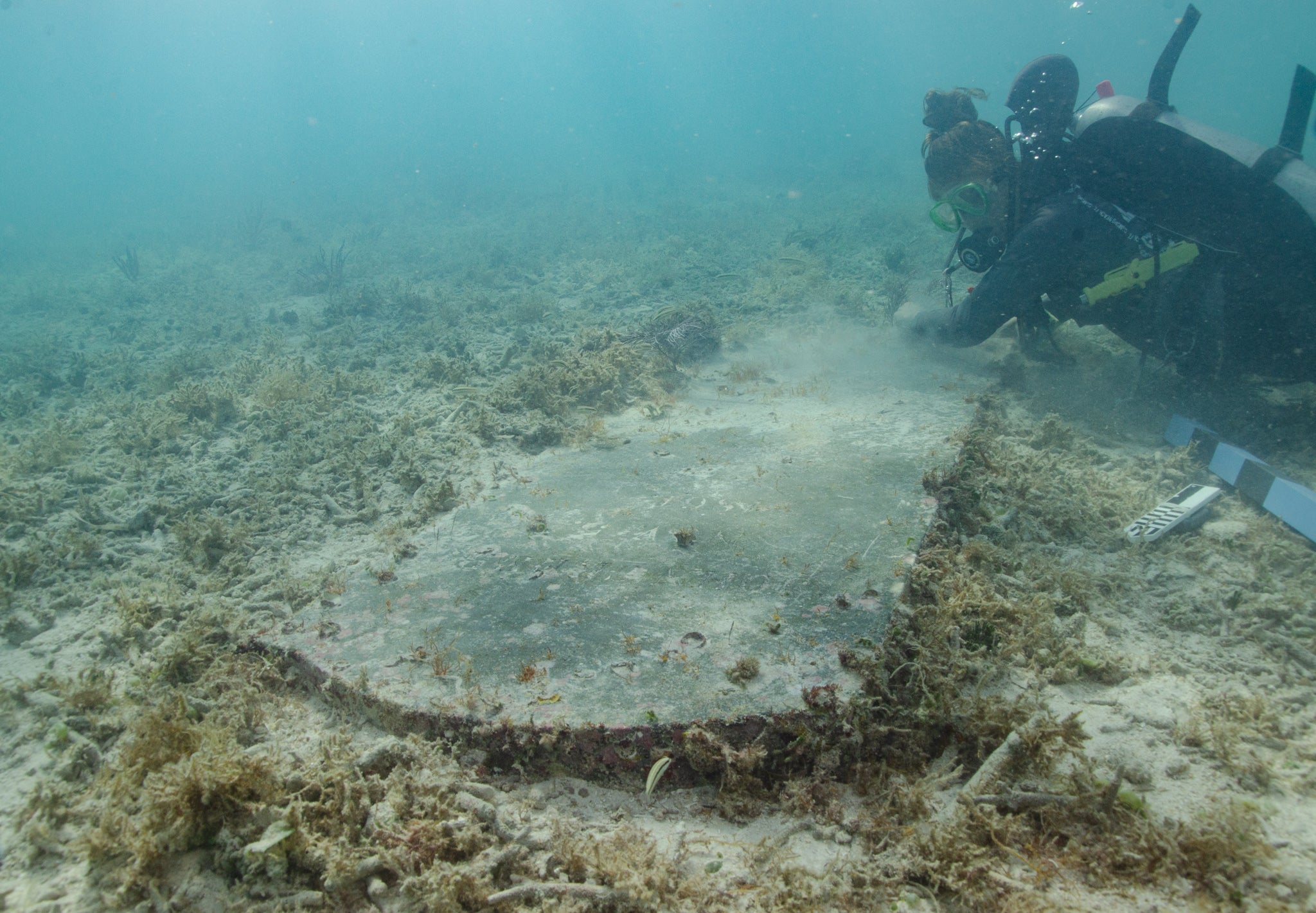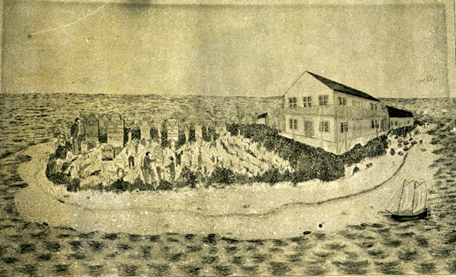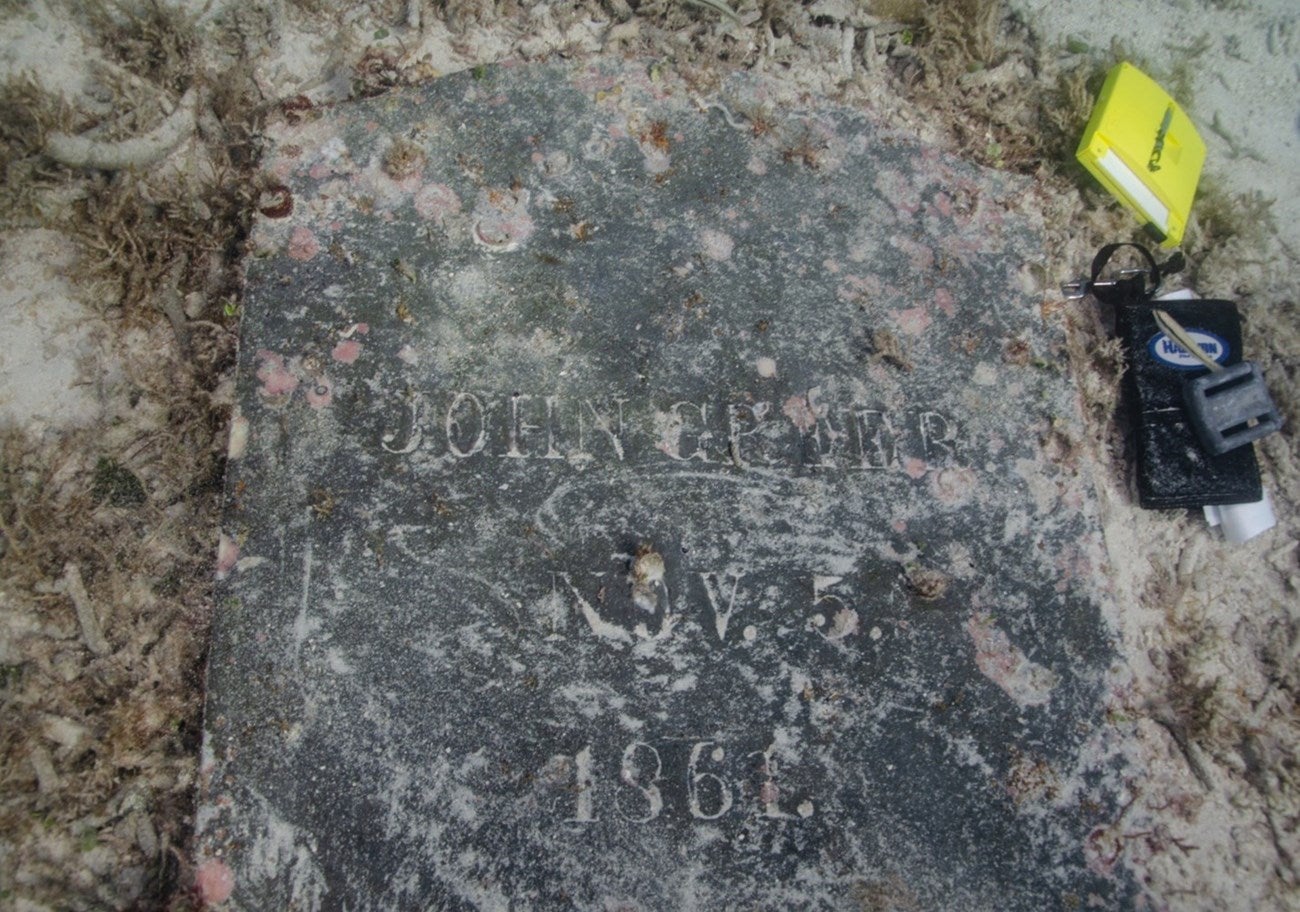19th century quarantine hospital and cemetery found on sunken island in Florida
Hospital treated soldiers with yellow fever
Your support helps us to tell the story
From reproductive rights to climate change to Big Tech, The Independent is on the ground when the story is developing. Whether it's investigating the financials of Elon Musk's pro-Trump PAC or producing our latest documentary, 'The A Word', which shines a light on the American women fighting for reproductive rights, we know how important it is to parse out the facts from the messaging.
At such a critical moment in US history, we need reporters on the ground. Your donation allows us to keep sending journalists to speak to both sides of the story.
The Independent is trusted by Americans across the entire political spectrum. And unlike many other quality news outlets, we choose not to lock Americans out of our reporting and analysis with paywalls. We believe quality journalism should be available to everyone, paid for by those who can afford it.
Your support makes all the difference.At a remote island park off the coast of Florida, researchers have made a stunning discovery: the remains of a sunken quarantine hospital and cemetery dating back to the late 1800s.
A team including the staff of Dry Tortugas National Park, the National Park Service (NPS), the Southeast Archeological Center, and a University of Miami graduate student happened upon the ruins as part of a 2022 survey, according to the NPS.
“This intriguing find highlights the potential for untold stories in Dry Tortugas National Park, both above and below the water,” Josh Marano, maritime archeologist for the south Florida national parks, said in an NPS news release. “Although much of the history of Fort Jefferson focuses on the fortification itself and some of its infamous prisoners, we are actively working to tell the stories of the enslaved people, women, children and civilian laborers.”

The researchers believe the sunken site was once home to a quarantine hospital used to treat yellow fever patients, mostly soldiers serving at nearby Fort Jefferson.
Historical records indicate “dozens” of soldiers may have been buried at the cemetry.
Among those buried at the former Fort Jefferson Post Cemetery was John Greer, who documents identify as a labourer at the fort. He died on 5 November, 1861.

The striking hexagonal Fort Jefferson, known as the Guardian of the Gulf, was built between 1846 and 1875, and was used during the Civil War as a harbour for Union ships, as well as a prison for deserters.
As people filled the military installation, communicable diseases spread quickly, killing “dozens” of people in the 1860s and 1870s, according to the NPS. Quarantine hospitals like the one uncovered by researchers likely saved hundreds of lives.

The disappearance of the facility is also a reminder of the impacts of climate change in the Florida Keys, according to the researchers.
“While the facilities identified in this survey were originally built on dry land, the dynamic conditions caused many of the islands to move over time,” the NPS added in its release announcing the discovery. “Climate change and major storm events have even caused some islands to settle and erode beneath the waves.”
Join our commenting forum
Join thought-provoking conversations, follow other Independent readers and see their replies
Comments